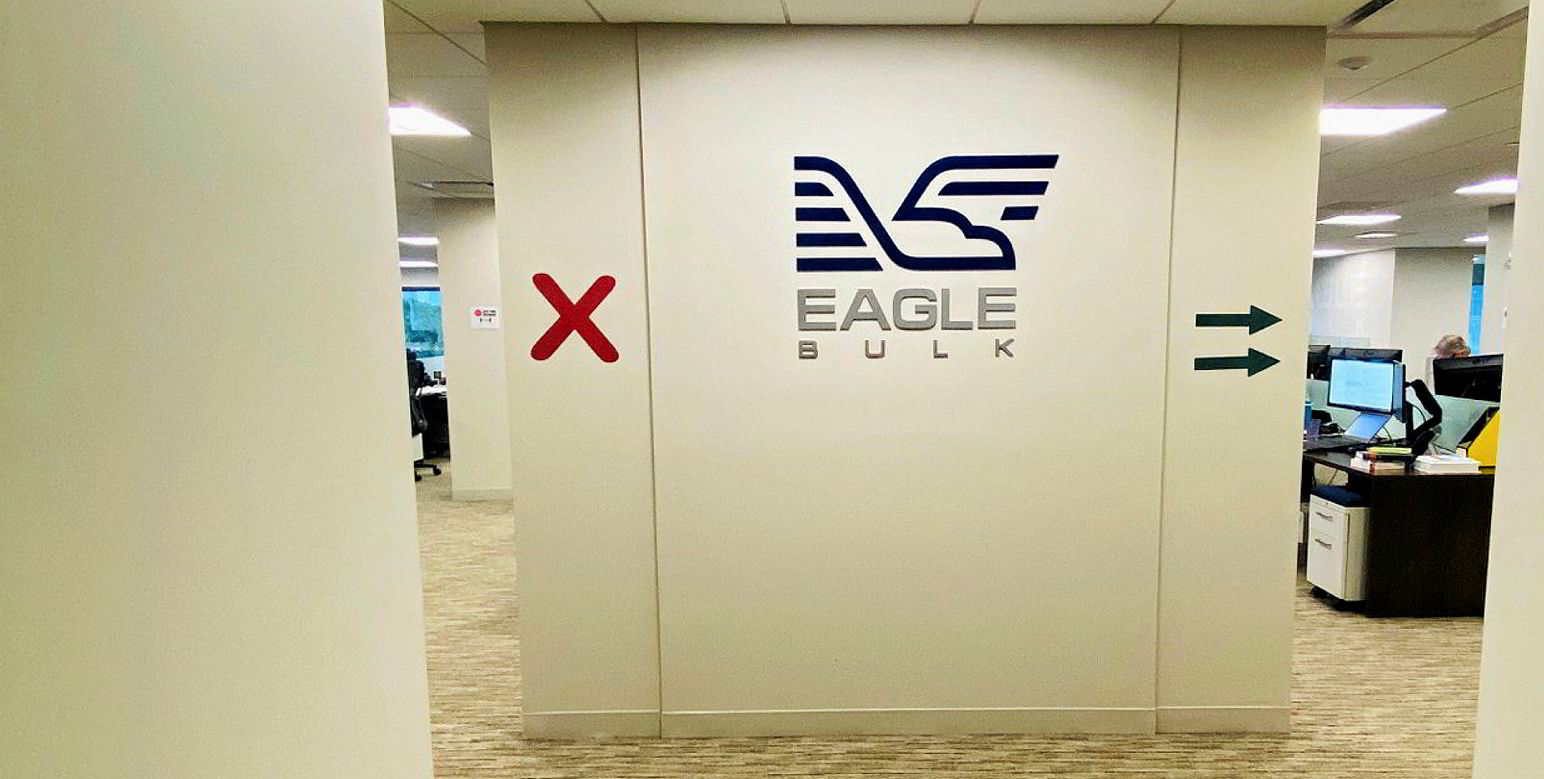Eagle Bulk has widened its loss for the third quarter amid a Covid-19 pandemic that continues to disrupt all of maritime shipping.
The Gary Vogel-led bulker owner of ultramaxes and supramaxes reported an $11.2m deficit for the three-month period versus a $4.6m loss for the same period last year.
That result translated into a $1.09 loss per share, missing Wall Street consensus by $0.39 and falling below last year's loss per share of $0.45.
Revenue came in at $68.2m versus $74.1m, primarily due to lower charter rates amid Covid-19 and lower chartered-in days, offset by more owned days after buying six ultramaxes in second half of 2019.
More ship sales?
Fearnley Securities said Ebitda of $14m was largely in line with consensus expectations.
The company repaid $20m of a revolving credit facility (RCF) in the period.
"While the company bolstered its liquidity by drawing its RCFs in full during the pandemic outbreak, we consider the recent repayment as a sign of the company’s strong confidence in its balance sheet and underlying market going forward," Fearnley said.
Proceeds of about $20m from four vessel sales are set to be held as restricted cash, as the ships were part of the collateral package in the bond silo, the investment bank said.
"With another four vessels built in the early 2000s in the bond silo, we expect further disposals in the near future with subsequent fleet renewal in order to prepare for a prospective refinancing of the 2022 bond," Fearnley added.
Available days were impacted by off-hire days related to crew-change delays caused by Covid-19.
Vogel touched upon Eagle Bulk's fleet renewal plans during Friday's earnings call without giving any specifics.
"Selling our older vessels, ones greater than 15 years, is something we will continue to do and look to replace them," he said.
"We're open to both individual ship purchases as well as en bloc purchases."
Lower charter rates
The average time charter equivalent (TCE) rate for supramaxes for the third quarter was $9,945 per day, according to Baltic Exchange assessments.
By comparison, it started the third quarter of 2019 at $9,067 per day and ended at $14,104 per day.
Vogel said during the call that China's refusal of Australian coal, offset by strong grain imports from US Gulf, is the main reason for the lower rates.
"I think that's the biggest thing at play right now," he said.
Eagle Bulk has fixed 73% of available days for the fourth quarter at a net TCE of $11,275 per day, ahead of Fearnley's estimates of $10,400 per day.
"While uncertainty around Covid-19 remains, we are cautiously optimistic that the global economy will continue to recover and benefit from various new monetary and fiscal stimulus programmes being instituted around the world," he said.
For the nine months ended 30 September, the company reported a net loss of $35.2m, compared to a net loss of $10.5m.
Revenue was $200m versus $221m, primarily due to lower charter rates offset by a higher number of freight voyages, which increase both revenue and voyage expenses. The available days remained flat year over year.
Eagle Bulk's shares, which trade on the Nasdaq exchange as EGLE, slid 1.7% to close at $14.75 on Thursday.






